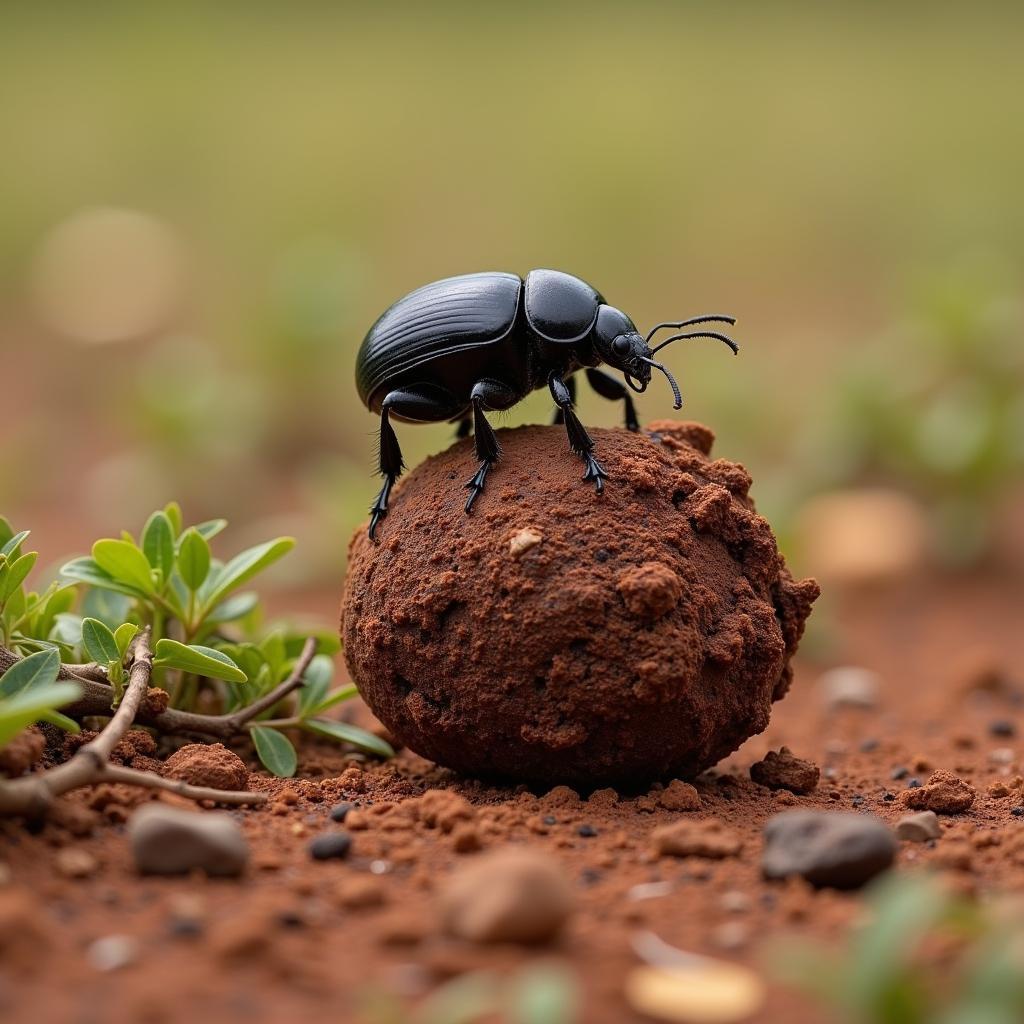The Unsung Heroes of the African Grassland: Decomposers
The vast expanse of the African grasslands teems with life, from the iconic elephants and lions to the smallest insects. While much attention is given to the majestic creatures and their struggle for survival, there exists a hidden world equally vital to the delicate balance of this ecosystem – the world of African Grassland Decomposers.
These often-overlooked organisms, mainly fungi and bacteria, play a crucial role in the circle of life. They are the ultimate recyclers, breaking down dead plant and animal matter, returning essential nutrients to the soil. Without them, the grasslands would quickly become choked with decaying matter, disrupting the flow of energy and nutrients that sustains life.
The Power of Decomposition: Breaking Down the Basics
Decomposition is the process of breaking down complex organic matter into simpler substances. In the African grasslands, this process is primarily driven by a diverse community of decomposers:
- Bacteria: These microscopic powerhouses are the most abundant decomposers, thriving in the warm, moist environments found within decaying matter.
- Fungi: From microscopic molds to larger mushrooms, fungi are essential decomposers, particularly efficient at breaking down tough plant material like lignin.
- Invertebrates: A variety of invertebrates, including dung beetles, termites, and earthworms, act as detritivores, feeding on dead organic matter and aiding in its initial breakdown.
The Crucial Role of African Grassland Decomposers
The importance of decomposers extends far beyond simply cleaning up dead matter. Their actions have far-reaching consequences for the entire ecosystem:
- Nutrient Cycling: Decomposers release essential nutrients like nitrogen, phosphorus, and potassium back into the soil, making them available for plant uptake and fueling new growth.
- Soil Fertility: The breakdown of organic matter by decomposers improves soil structure, aeration, and water retention, creating a healthy environment for plant roots.
- Carbon Cycle: Decomposers play a crucial role in the global carbon cycle. As they break down organic matter, they release carbon dioxide back into the atmosphere, contributing to the delicate balance of greenhouse gases.
 African Dung Beetle Rolling Dung
African Dung Beetle Rolling Dung
Threats to African Grassland Decomposers
Despite their critical importance, decomposers face numerous threats, largely stemming from human activities:
- Habitat Loss and Fragmentation: The conversion of grasslands to agricultural land and urban areas directly destroys decomposer habitats and disrupts their populations.
- Climate Change: Alterations in rainfall patterns and increasing temperatures can directly impact decomposer activity and survival.
- Pollution: Pesticides, herbicides, and other pollutants can accumulate in the soil, harming beneficial decomposer communities.
Protecting the Unsung Heroes
Conserving the diversity and abundance of African grassland decomposers is crucial for the health and resilience of these vital ecosystems. Several strategies can help mitigate the threats they face:
- Sustainable Land Management Practices: Implementing practices like crop rotation, no-till farming, and agroforestry can help maintain soil health and support decomposer populations.
- Climate Change Mitigation: Reducing greenhouse gas emissions through global cooperation and transitioning to renewable energy sources is essential.
- Pollution Reduction: Minimizing the use of pesticides and herbicides and promoting sustainable waste management practices can help protect decomposers from harmful pollutants.
The Future of Decomposition
As we continue to learn more about the intricate workings of the natural world, the importance of decomposers becomes increasingly clear. By understanding the threats they face and implementing conservation strategies, we can help ensure the long-term health and productivity of the African grasslands.
Frequently Asked Questions About African Grassland Decomposers
-
What would happen if there were no decomposers? Without decomposers, dead plant and animal matter would accumulate, leading to a buildup of nutrients in dead matter and a depletion of nutrients in the soil. This would eventually result in the collapse of the entire ecosystem.
-
How do decomposers benefit humans? Decomposers are essential for maintaining soil fertility, which is crucial for food production. They also play a vital role in nutrient cycling and the breakdown of pollutants.
-
What can I do to help protect decomposers? You can support sustainable agriculture, reduce your carbon footprint, and minimize your use of harmful chemicals.
-
Are there any specific decomposers unique to the African grasslands? While many decomposer species are found globally, the African grasslands host unique and diverse communities adapted to the specific conditions of this ecosystem.
-
Where can I learn more about African grassland decomposers? Numerous resources, including scientific journals, conservation organizations, and educational websites, provide valuable information on this fascinating topic.
We encourage you to explore further and discover the fascinating world of African grassland decomposers. For more insights into African insects and the intricate food web, check out our articles on african insects photos and african food chain examples. If you are intrigued by the fascinating world of decomposers, be sure to read about the african horned beetle, a remarkable example of an insect contributing to the decomposition process.
For any assistance, please contact us at Phone Number: +255768904061, Email: kaka.mag@gmail.com Or visit us at: Mbarali DC Mawindi, Kangaga, Tanzania. We have a dedicated customer support team available 24/7.